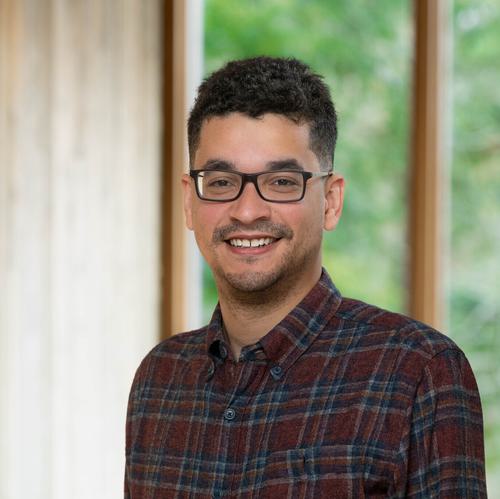
Adrian Castro
Assistant Professor of Geosciences
Research Interests: I'm a metamorphic petrologist and geochemist interested in metamorphic phase equilibria, chemical kinetics, convergent tectonics, and subduction zone dynamics.
I'm a metamorphic petrologist and geochemist interested in metamorphic phase equilibria, chemical kinetics, convergent tectonics, and subduction zone dynamics. Essentially, I'm interested in how mountains are formed and how the materials that make up the crust are recycled back into the Earth. I employ thermodynamic modeling, Raman spectroscopy and good old fashioned petrography (along with other tools) to constrain the conditions of fluid production during subduction and the petrologic and structural evolution of mountain belts.
My courses are classically grounded, but forward looking. I incorporate hands-on lab work with long term collaborative projects to help students build critical thinking skills that help them solve geological and real life problems. I teach courses in the realm of “hard rocks” including Volcanology, Earth Materials, and Igneous and Metamorphic Petrology. I’m interested in developing senior theses with any students interested in tectonics, earth materials and metamorphic petrology!
Education
- B.A., Amherst College
- M.S., Rensselaer Polytechnic Institute
- Ph.D., Rensselaer Polytechnic Institute
Current and upcoming courses
Tectonic History of New England with Laboratory: An Igneous and Metamorphic Perspective
GEOS317
The metamorphic and igneous rocks that underlie much of New England record a complicated history of mountain building, subduction, and failed rifting dating back to at least 1.2 Ga. This course will explore this history from the earliest orogeny to the assembly and destruction of Pangea. To guide our exploration, we’ll focus on three key questions:
1. How and why do igneous and metamorphic rocks form, and how are these processes related to plate tectonics?
2. How can we use the geochemistry and structural geology of igneous and metamorphic rocks to reconstruct past tectonic events?
3. How are stable cratons formed and why do they remain stable?
There will be one weekend day trip and one overnight weekend trip.
-
The Dynamic Earth with Laboratory
GEOS102
The Earth is a dynamic planet where change is driven by processes that operate within its interior and on its surface. In this course we study these processes as well as interactions between the solid earth, the hydrosphere, the atmosphere, and the biosphere that together produce the environment we live in and influence our daily lives. Topics covered include the origin and history of the Earth, plate tectonics, deep time, the materials that make up the solid earth, the distribution of earthquakes and volcanoes, hydrology, landscape evolution, and global climate. Hands-on work in class and laboratory sessions, along with project work, and local field trips, provide opportunities to develop deeper learning of key concepts and to hone observational and analytical skills.